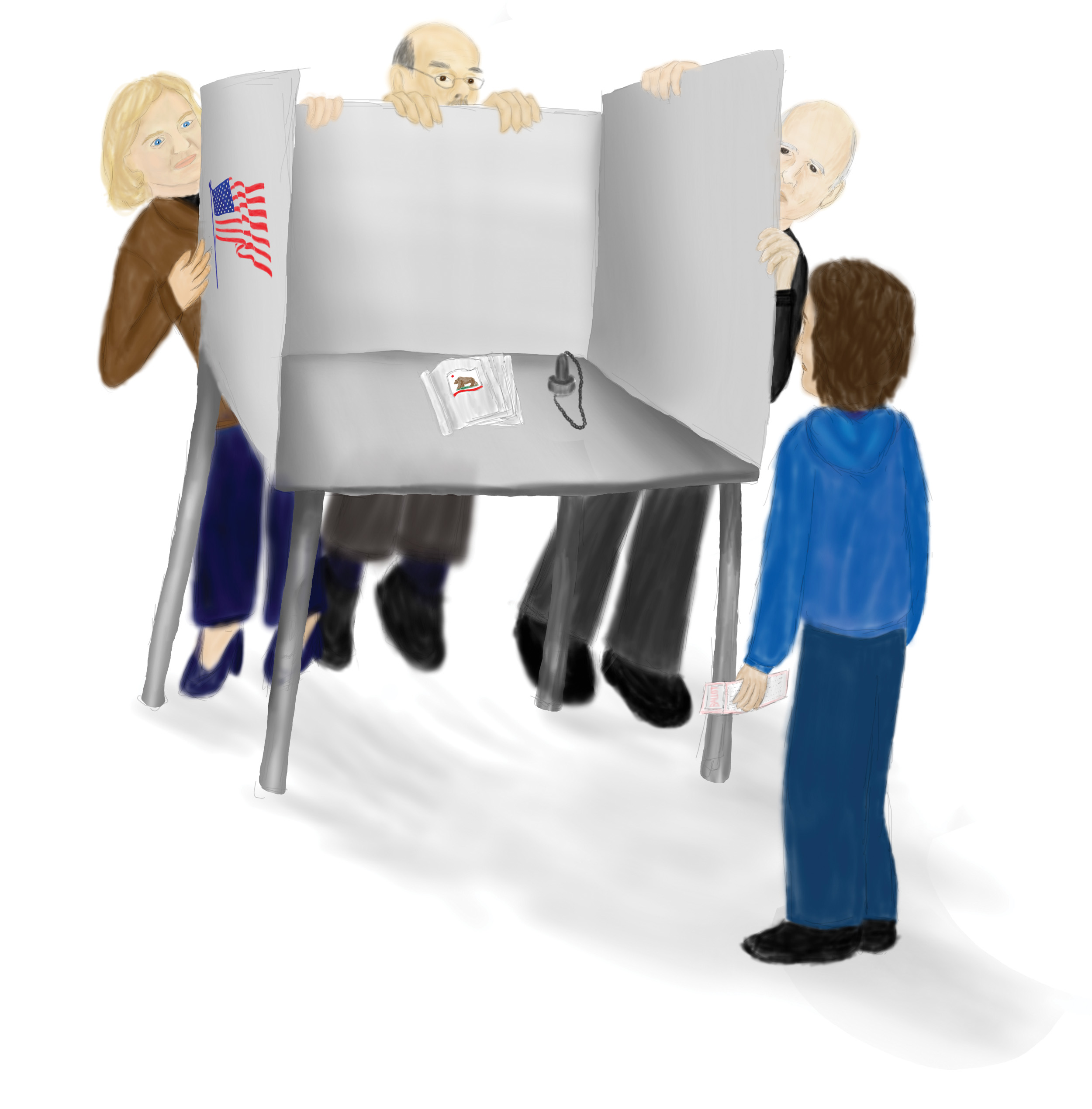If traveling down Bruin Walk is any indication, legalizing marijuana seems to have weighed more heavily on the minds of college students than who would become the leader of the eighth largest economy in the world.
Proposition 25 ““ a constitutional amendment and not just any ballot initiative ““ also received too little attention from the UCLA community. Proposition 25 is arguably the most far-reaching measure on the ballot since it would allow the state budget to be passed by a simple 51 percent majority.
I guess it’s too much to expect the majority of students to pay attention to issues that don’t immediately affect their Friday nights.
Sure, some of them are legitimately disillusioned with the political process. Others abstain from voting to voice their distaste for all candidates. Nationwide, only 11 percent of those less than 30 years old voted.
America could certainly be served by some stronger third parties, but at the end of the day, a majority of young people decided not to choose who leads our state, and I find that a tragedy.
I’m sure more young people have an opinion. And I’m further sure they’ll voice their distaste at the present government when they’re upset by its policies. But they’ll have no one to blame but themselves for who is in power.
That most young voters decided not to vote doesn’t come as a surprise, as only 24 percent of young voters turned out in the 2006 midterm elections. Democratic is not the word that comes to mind when I think of a voting populace that is largely more than 40 years old.
Still, students on campus did exhibit actual interest in the propositions. No on 23, Yes on 19 posters and advocates of both propositions peppered a surprisingly political Bruin Walk.
It’s nice to see students engaged in the political process, whether motivated by mind altering substances or otherwise. But it’s sad that such attention wasn’t paid to the race for governor nor the other important propositions on the ballot.
There’s no hiding that UCLA leans more toward the liberal side of the political spectrum, and it’s common knowledge that when young people vote, they tend to vote Democratic. President Obama captured 68 percent of the youth vote in 2008, so it’s sad that more of us don’t vote.
It’s only because California is such a Democratic-leaning state that we are lucky enough to avoid the consequences of such a low voter turnout among both young and old.
Whether you’re Democrat or Republican, our voices are not being heard as loudly as they should be. And it’s not for lack of trying on the part of candidates. Whitman, to her credit, wasted vast sums of her personal fortune to develop the infrastructure for an interactive website, which showcased reasons why college students and young professionals should vote for her. She also had college-specific campaign literature made.
Brown didn’t have as much money to spend but had numerous rallies at college campuses, including UCLA.
Both political parties wanted us to vote, but their combined voices weren’t enough to wake us up from our apathy, and their efforts nationwide seem to have been in vain.
Before the election, the Pew Research Center reported that only 31 percent of young voters had given the election a significant amount of thought, 22 points behind their older counterparts.
It seems, for our own purposes, that the right candidates won. Whitman decided to avoid the substantive issues when dealing with higher education, instead opting to repeat talking points about job creation. Brown, meanwhile, was an ally of the University of California system during his eight previous years as governor and will likely continue that trend in his next four.
At the end of the day, we got lucky, and the right man for the job won. But if we’re to take on same-sex marriage, immigration reform and the economy as the new leaders of this generation, we’ll have to have more than luck. We owe it to our country and to ourselves.
Did you vote? E-mail Zymet at pzymet@media.ucla.edu. Send general comments to opinion@media.ucla.edu.
